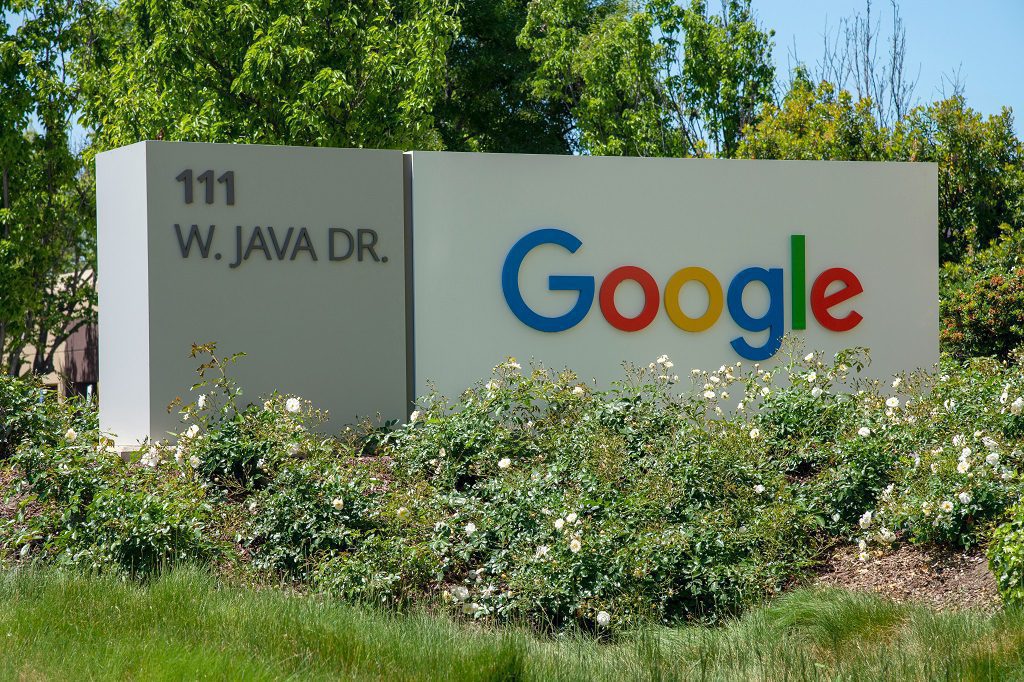
Google Faces UK Regulatory Scrutiny as the United Kingdom’s Competition and Markets Authority (CMA) intensifies its focus on the tech giant’s dominance in online search and digital advertising. The CMA’s recent proposals aim to address concerns over Google’s market power, which some argue stifles innovation and limits consumer choice. With potential reforms looming, this scrutiny could reshape how Google operates in the UK, impacting its search engine algorithms, advertising practices, and even its AI-driven responses. This article dives into the details of the CMA’s actions, their implications for Google, and what it means for users and businesses alike.
Key Takeaways
- The UK’s CMA is investigating Google’s dominance in online search and digital advertising.
- Proposed reforms could force Google to offer alternative search options and adjust its ranking algorithms.
- The scrutiny may impact Google’s business model, innovation, and consumer experience in the UK.
- Google faces potential fines and operational changes if found non-compliant with new digital regulations.
Why Is Google Under UK Regulatory Scrutiny?
The CMA has raised concerns about Google’s market dominance in the UK’s digital landscape. Reports indicate Google controls over 90% of the UK search engine market, leaving little room for competitors like Bing or DuckDuckGo. This dominance extends to digital advertising, where Google’s ad platforms dominate revenue streams. The CMA argues this creates an uneven playing field, harming smaller businesses and innovation.
Contents
- 1 The CMA’s Concerns
- 2 A History of Regulatory Challenges
- 3 Key Proposals
- 4 Potential Impact on Google
- 5 Benefits for Consumers
- 6 Potential Drawbacks
- 7 Google’s Counterarguments
- 8 Opportunities for Competitors
- 9 Global Implications
- 10 How AI Shapes Search
- 11 Regulatory Focus on AI
- 12 Timeline of Events
- 13 Possible Outcomes
The CMA’s Concerns
The CMA’s provisional findings highlight several issues:
- Monopoly in Search: Google’s search engine algorithms prioritize its own services, potentially sidelining competitors.
- Advertising Practices: Google’s control over ad tech limits transparency and competition.
- Consumer Choice: Users may lack access to diverse search options, reducing variety in results.
- Innovation Stifling: Smaller companies struggle to compete, hindering technological advancements.
A History of Regulatory Challenges
This isn’t Google’s first brush with regulators. In 2024, the company faced a £5 billion lawsuit in the UK for abusing its search dominance. Globally, Google has been fined billions by the European Union for antitrust violations. The current scrutiny builds on these precedents, with the CMA leveraging new powers under the UK’s Digital Markets, Competition, and Consumers Act.
What Are the Proposed Reforms?
The CMA has outlined potential changes to address Google’s dominance. These reforms aim to create a fairer digital market and enhance consumer choice.
Key Proposals
- Alternative Search Options: Google may be required to offer users a choice of search engines during device setup.
- Fairer Ranking Algorithms: Adjustments to search engine algorithms to prevent favoring Google’s own services.
- Ad Transparency: Increased openness in how Google’s advertising platforms operate.
- AI Response Oversight: Scrutiny of Google’s AI-driven responses to ensure they don’t prioritize its ecosystem.
Potential Impact on Google
| Area Affected | Proposed Change | Potential Outcome |
|---|---|---|
| Search Engine | Offer alternative search options | Reduced market share, increased competition |
| Advertising | Greater transparency in ad tech | Fairer pricing for advertisers |
| AI Responses | Oversight of AI-driven results | More neutral search outcomes |
| Innovation | Level playing field for competitors | Growth in smaller tech firms |
How Does This Affect UK Consumers?
For UK consumers, these reforms could mean more choices and better services. A less dominant Google might lead to diverse search results, improving user experience. However, changes could also disrupt the seamless experience Google users expect. For instance, alterations to search engine algorithms might affect the accuracy of results during the transition.
Benefits for Consumers
- More Options: Access to alternative search engines like DuckDuckGo or Ecosia.
- Improved Privacy: Competitors may prioritize user privacy, unlike Google’s data-driven model.
- Diverse Results: Less bias toward Google’s services in search outcomes.
Potential Drawbacks
- Disrupted Experience: Changes to Google’s interface could confuse users.
- Slower Innovation: Regulatory constraints might limit Google’s ability to roll out new features quickly.
Google’s Response to the Scrutiny
Google has defended its practices, arguing that its dominance stems from user preference, not anti-competitive behavior. The company highlights its investments in innovation, such as AI-driven responses and enhanced search features. Google also claims that forcing changes could harm its ability to deliver high-quality services. In a statement, Google emphasized that its search engine algorithms are designed to prioritize user relevance, not just its own products.
Google’s Counterarguments
- User Choice: Google argues users choose its services for quality and convenience.
- Innovation Leadership: Investments in AI and search technology benefit consumers.
- Economic Contribution: Google supports thousands of UK jobs and businesses through its platforms.
The Broader Impact on the Tech Industry
The CMA’s actions could set a precedent for regulating tech giants globally. If successful, other countries might adopt similar measures, challenging Google’s global dominance. This could also embolden competitors to innovate, potentially leading to a more diverse digital ecosystem.
Opportunities for Competitors
- Bing and DuckDuckGo: Increased visibility if Google offers alternative search options.
- Startups: A fairer market could encourage new entrants in search and ad tech.
- AI Innovation: Oversight of Google’s AI-driven responses may open doors for AI-focused competitors.
Global Implications
The UK’s approach mirrors efforts in the EU and US, where regulators are also targeting Big Tech. For example, the EU’s Digital Markets Act imposes similar restrictions on Google. A coordinated global push could force Google to rethink its business model, particularly in digital advertising and search.
The Role of AI in Google’s Scrutiny
Google’s use of AI-driven responses in search results has drawn particular attention. The CMA is concerned that Google’s AI prioritizes its own services, such as Google Maps or YouTube, over competitors. This could limit the visibility of alternative platforms, reducing consumer choice.
How AI Shapes Search
- Personalized Results: AI tailors results based on user data, often favoring Google’s ecosystem.
- Voice Search: Google’s AI powers voice assistants, which may default to its services.
- Ad Targeting: AI-driven ads dominate Google’s revenue, raising transparency concerns.
Regulatory Focus on AI
The CMA is exploring ways to ensure AI-driven results are fair. This might involve mandating neutral algorithms or requiring Google to disclose how its AI prioritizes content. Such changes could reshape how users interact with search engine algorithms.
What’s Next for Google in the UK?
The CMA’s investigation is ongoing, with final decisions expected in 2026. If Google is found non-compliant, it could face hefty fines or mandatory operational changes. The company may also need to adapt its digital advertising and search practices to align with new regulations.
Timeline of Events
| Date | Event |
|---|---|
| June 2025 | CMA proposes reforms to Google’s search and ad practices |
| 2026 | Final CMA ruling expected |
| 2027 | Potential implementation of new regulations |
Possible Outcomes
- Fines: Google could face penalties similar to the EU’s €4 billion fine in 2018.
- Operational Changes: Mandatory adjustments to search and ad systems.
- Market Shift: Increased competition in the UK’s digital market.
Summary
Google Faces UK Regulatory Scrutiny as the CMA targets its dominance in search and digital advertising. Proposed reforms include offering alternative search options, adjusting search engine algorithms, and increasing ad transparency. These changes could enhance consumer choice and competition but may disrupt Google’s seamless user experience. The scrutiny reflects a global push to regulate Big Tech, with implications for innovation and market dynamics. As the CMA’s investigation continues, Google’s response and potential adaptations will shape the future of the UK’s digital landscape.
FAQs
- Why is Google facing regulatory scrutiny in the UK?
The CMA is investigating Google’s dominance in search and digital advertising, citing concerns over limited competition and consumer choice. - What changes might Google have to make?
Google may need to offer alternative search engines, adjust search engine algorithms, and increase transparency in its ad practices. - How does Google’s market dominance affect consumers?
It can limit search result diversity and reduce options, but Google argues its services offer unmatched quality and convenience. - What role does AI play in this scrutiny?
The CMA is examining Google’s AI-driven responses to ensure they don’t unfairly prioritize its own services. - Could this affect Google’s services globally?
Yes, a successful UK regulation could inspire similar actions in the EU, US, and other regions. - What happens if Google doesn’t comply?
Google could face fines or be forced to implement operational changes in the UK. - How will this impact smaller businesses?
A fairer market could help smaller businesses compete in search and advertising. - When will the CMA make a final decision?
The CMA is expected to issue a final ruling in 2026. - What is the Digital Markets, Competition, and Consumers Act?
It’s a UK law empowering the CMA to regulate digital markets and ensure fair competition. - Can competitors like Bing benefit from this?
Yes, reforms could increase visibility for competitors like Bing and DuckDuckGo.
STAY AHEAD OF THE CURVE WITH THE LATEST TECH INSIGHTS AND UPDATES! FOR MORE TECH-RELATED NEWS, VISIT TECHBEAMS.



